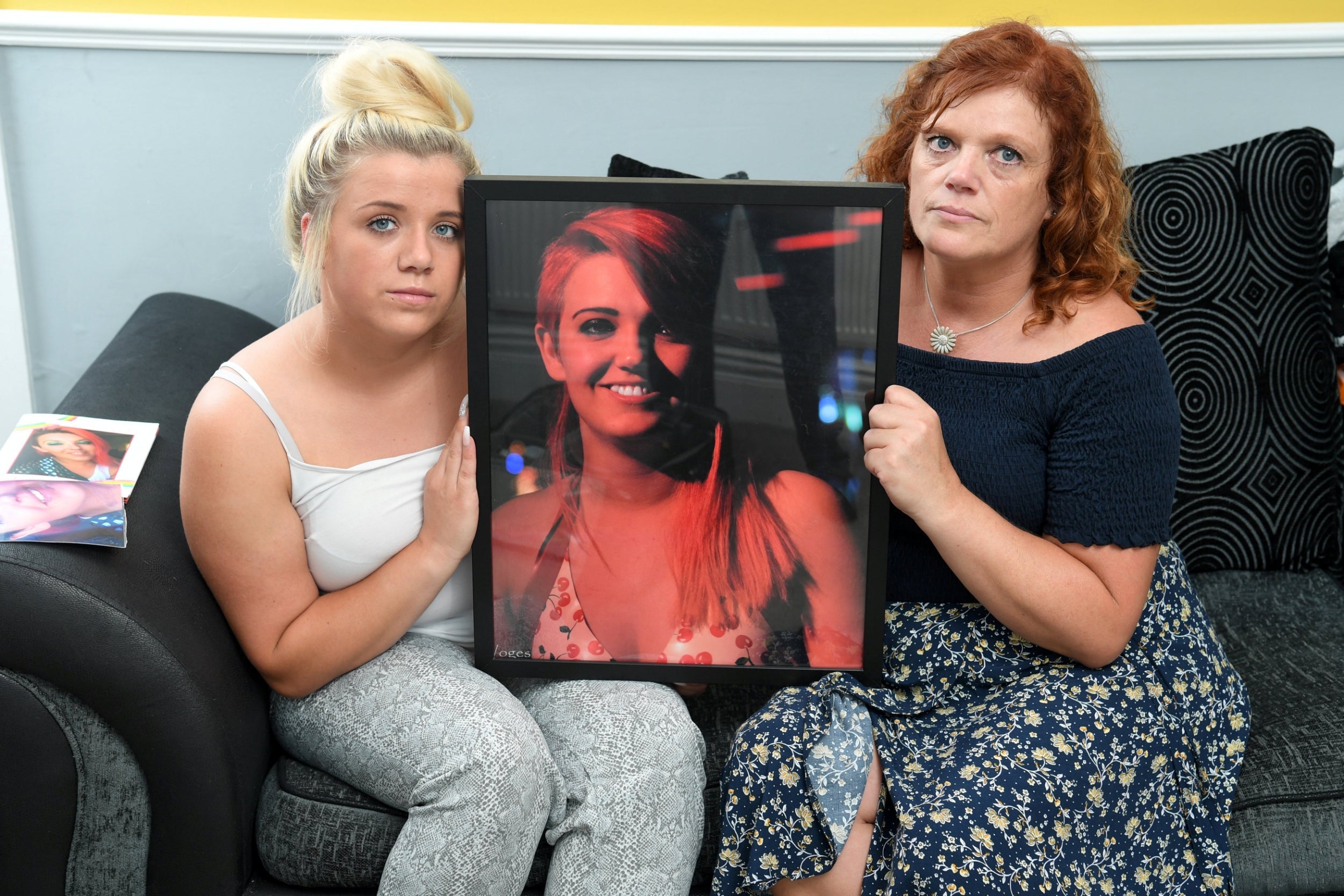Woman murdered by boyfriend days after asking police if he had history of violence
An ex-girlfriend warned ‘you’ll be next’ in Facebook post, says sister

A family have called for a review of Clare’s Law after a young woman tried to find out if her new boyfriend had a history of violence just 11 days before he brutally murdered her.
Rosie Darbyshire, a 27-year-old mother-of-one, died of serious head injuries in February after she was bludgeoned to death by Ben Topping before ever being officially told he had a criminal record for violent offences.
Ms Darbyshire had made an application under Clare’s Law in an attempt to find out about his past.
Clare’s Law, introduced in 2014 after Clare Wood was killed in Salford, allows people to ask police if their partner has a history of domestic violence.
Ms Darbyshire had been eager to dispel concerns her family had raised about Mr Topping, who is now serving a life sentence for her murder.
Under current guidelines, police forces provide information from Clare’s Law requests within 35 days but it is stressed that extenuating circumstances may increase the timescale.
Ms Darbyshire did not receive information about Mr Topping before he killed her.
She had only been with the 25-year-old for a month at the time of the murder – having reconnected on social media after they met at college years earlier.
He was on bail for actual bodily harm for breaking a man’s jaw at a club nine months before.

Alice Hodgson, her sister, said: “When she started putting pictures of them together on Facebook, people were commenting on them, saying he’s a bit weird, or he’s not good for her.
“An ex-girlfriend of his wrote something like, ‘You’ll be next’. We kept pushing Rosie to do [a Clare’s Law application], so she did it to prove a point – that everything was okay.”
Her sister and her family, from Preston in Lancashire, have now launched a campaign for Clare’s Law to be changed – calling for disclosures about criminal history to be passed on more quickly.
Ms Darbyshire applied for information about Topping on 28 January – and was murdered with a crowbar following an argument on 7 February. She was left unrecognisable after sustaining more than 50 injuries.
Her family say Topping was aware the application had been made and had told her he was on bail for actual bodily harm.
Andrea Darbyshire, her mother, said: “They weren’t together long, but in that time he changed her.
“They knew each other from college and he made her feel good at a low ebb in her life by saying he had always fancied her. She never mentioned him being aggressive towards her. In fact, she said he understood her, he let her be herself.”

The campaign has gained the support of Michael Brown, who spearheaded the original fight to set up Clare’s Law back in 2014. His 36-year-old daughter Clare Wood was murdered by her ex-boyfriend in 2009.
A Change.org petition has been set up calling for the government to reduce the 35-day time period that forces have to supply information. The issue will be discussed in parliament if the petition reaches 100,000 signatures.
“Clare’s Law is an incredible thing, but it needs tightening up,” Ms Darbyshire's other sister, Eleanor, said.
“It’s such a long process but you see people getting stopped and searched at the roadside, and the police have all the information there and then. Why can’t Clare’s Law be like that?
“He [Topping] broke someone’s jaw, he was on bail for ABH, so surely it’s just a phone call to find that out?”
She added: “We are not delusional, Rosie might not have left [Topping] if she’d had the response, she might have decided she was going to be the one who changed him, but she didn’t get to make that choice. If this saves a handful of lives, then we need to do it.”
The campaign is also calling for greater awareness of the scheme and for applicants to get a call back within 48 hours.
Lancashire Constabulary is being investigated by the Independent Office for Police Conduct because Ms Darbyshire had contacted them before her death.
“We can confirm that an application had been made under Clare’s Law and this was being considered at the time of Rosie’s tragic murder,” a force spokesperson said.
The petition comes after campaigners roundly condemned the government’s new Domestic Abuse Bill last month for not recognising the “gendered nature” of domestic violence and failing to address a “raft of cuts” to services.
Leading anti-violence organisations identify domestic abuse as a “gendered crime” – saying while both men and women may experience incidents of interpersonal violence and abuse, women are considerably more likely to experience repeated and severe forms of abuse, including sexual violence.
Out of an estimated 2 million victims of domestic abuse in the last year, some 1.3 million were women, the latest figures show. The majority (70 per cent) of victims of domestic violence deaths were female.
In 2013-14, 93 per cent of defendants in domestic violence court cases were male and 84 per cent of victims were female. Every week in the UK, two women are murdered by a partner or ex-partner.
The domestic abuse legislation was introduced to parliament last month. It would place a legal duty on councils to offer secure homes for those escaping violence and their children and proposes creating a dedicated domestic abuse commissioner.
The legislation also introduces the first statutory definition of domestic abuse to include economic abuse and controlling and manipulative behaviour that is not physical.
Additional reporting by SWNS
